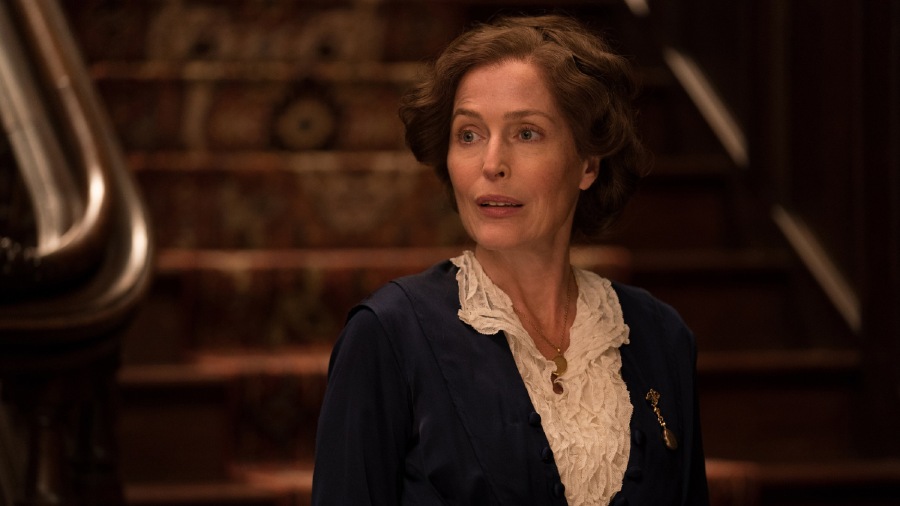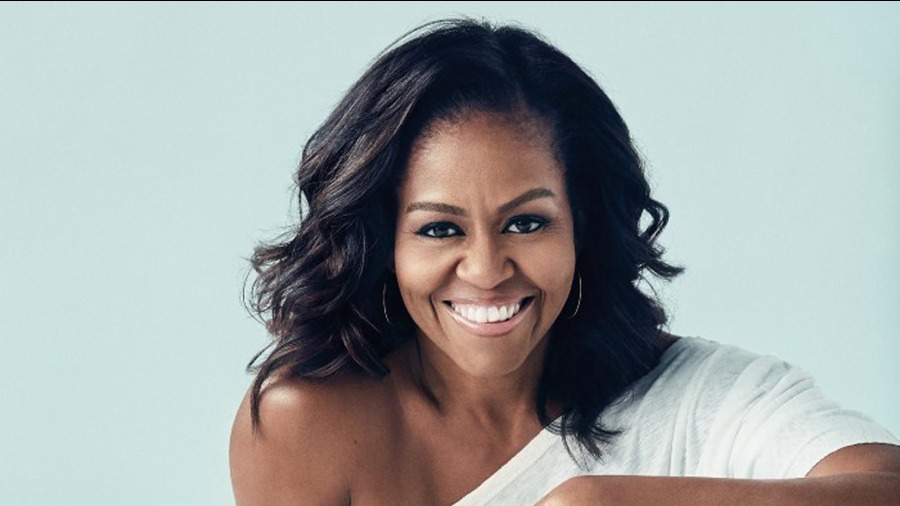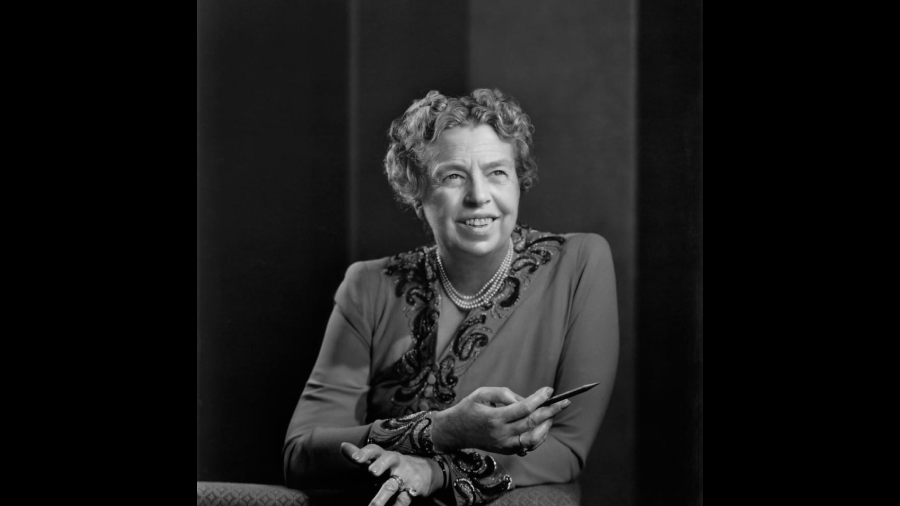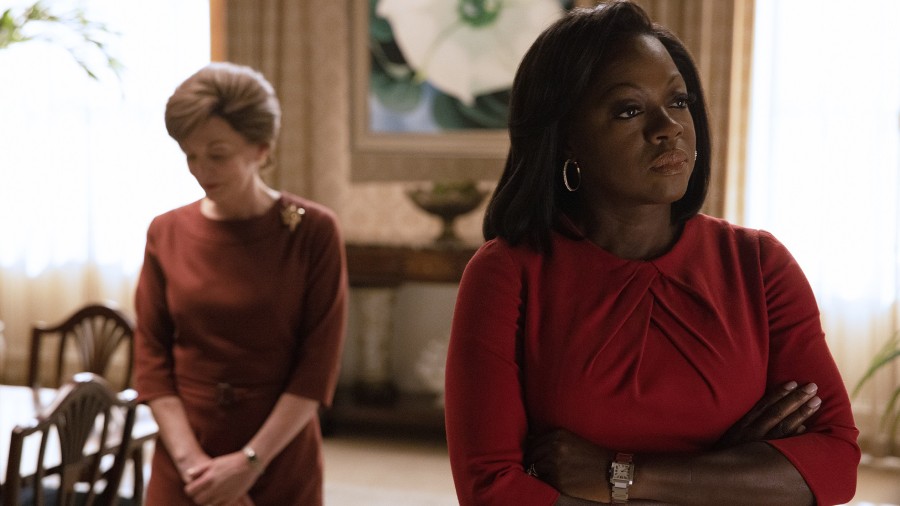Behind every successful man, there is a woman, goes the saying, ringing true for the wives of US Presidents — at least most of them — through the decades. The First Lady, a 10-episode Showtime series premiering today, chronicles the life and times of three American first ladies — Eleanor Roosevelt, wife of President Franklin Roosevelt, Betty Ford, wife of Gerald Ford and Michelle Obama, wife of Barack Obama. And yet none of these women lived in the shadows of their husbands while in The White House, having both agency and autonomy and a presence and power of their own.
At the crack of dawn (India time) recently, The Telegraph connected with Viola Davis, who plays Michelle Obama, and Gillian Anderson, who essays the part of Eleanor Roosevelt (Michelle Pfeiffer plays Betty Ford but wasn’t present for the interaction) to chat about the series, the importance of the American first lady and their strategy to play their respective parts. Besides these acting powerhouses, the series boasts names like Aaron Eckhart, Kiefer Sutherland, Dakota Fanning and Judy Greer. In India, The First Lady can be streamed on Voot Select.

How do you think the role of the US first lady has changed over the years and what did you learn from your characters, Michelle Obama and Eleanor Roosevelt?
Gillian Anderson: It’s interesting... I feel like my being has changed from watching the stories of the other two first ladies, as much as it has changed playing Eleanor Roosevelt. Each of their experiences were so different. Similar in some ways and so different in other ways. Even today, being the First Lady is almost like a thankless job in a way.
Eleanor Roosevelt was incredibly non-reactive, and I have the tendency to be very reactive. That was an interesting thing to play because it’s so contrary to my life experiences. She was a very kind and gentle and compassionate woman whose absolute joy in life... where she found the most joy was to be of service. From the moment she woke up to when she went to bed, she felt she had a duty.
Viola Davis: What I learnt from Michelle Obama is that she refused to be invisible. She was and is a person in her own right. And I don’t think that being a part of this show has changed my opinion of the first lady. In fact, it’s probably magnified what I already knew. Like Gillian said, it’s thankless and it’s also about living your life in a fish bowl and being open to constant scrutiny. From what they wear to what they say to how they say it... everything is scrutinised. Michelle Obama is someone who didn’t let anything or anyone shake her values or her confidence in herself.
What went into slipping into the skin of these dynamic women?
Gillian: A lot of research, just diving into everything that I could get my hands on.... I don’t think that’s been challenging, in fact I find that aspect of preparation to be quite interesting. Any time I have attempted a historical character before, the moment of reckoning happens when I am on set for the first time... you have been working on your voice, you have done your (costume) fittings... and it all has to come together suddenly in that moment on set when you have to walk and talk and interact as your character.
That’s what I always find the most daunting. And you have to keep all of that — the voice, the walk, the talk — intact as you play the character and while it gets easier as the days go by, the first few days on set can make you feel like you are a robot.
What’s the difference in your approach towards acting when you play a real person?
Gillian: In playing a real person, particularly a historical and iconic person, there is so much information out there about those people... it feels almost like a gift that’s handed to you because everything that you want to know about them is written down somewhere, recorded somewhere. Whereas when you play a non-real person, on one hand there is no responsibility because you are not answerable to anyone, but on the other, you have to step up yourself to create a three-dimensional, full-fledged human being. You have to fill in all the blanks, but as I said, the pressure and responsibility isn’t so high. It’s a very different experience.
Viola: When you play someone real, you are given very specific information and you have to adhere to that. In the case of the first ladies, what was their time like in office, how did they bring up their children... all those things are very specific. At the same time, every character has an emotional arc and even when you play a real person, you have to gauge their emotional depth beyond the facts.
As actors, the big thing is about being privately public. The private moments between Michelle and Barack (Obama) were, I think, tough to excavate and put out because they are so recent.

What I learnt from Michelle Obama is that she refused to be invisible. She was and is a person in her own right. And I don’t think that being a part of this show has changed my opinion of the first lady. In fact, it’s probably magnified what I already knew. it’s thankless and it’s also about living your life in a fish bowl and being open to constant scrutiny. From what they wear to what they say to how they say it... everything is scrutinised. Michelle Obama is someone who didn’t let anything or anyone shake her values or her confidence in herself — VIOLA DAVIS
Viola, Michelle Obama has been one of the most prolific first ladies and continues to command attention. Did playing her restrain you in some ways in terms of putting in your own creative inputs?
Viola: Yes, absolutely! I fought a great deal of fear because of all those reasons. She is someone who is very much alive, and also someone who is very, very loved and adored. Michelle Obama, on her book tour, once said, ‘I have to think before I give out my opinion on something because that could really shift the way the nation sees us’. It could cause a policy or a bill to be killed on the floor. And I felt that same sort of restriction even in the writing of Michelle Obama’s time as the first lady. I felt that restriction because we just couldn’t put anything that we wanted to on page... the repercussions of that would reverberate much more than Eleanor or Betty’s (Ford) time period. People don’t remember what happened 20 or 50 years ago, but they certainly remember the Obamas. To answer your question, yes I felt restricted.
Stories about real people who are important in history are two-pronged — they have to be as much about that person as about their historical context. Is The First Lady a personal portrait like the film Jackie or does it focus more on the historical and political importance of those you play, like perhaps House of Cards or The West Wing?
Gillian: It’s a mixture of both, I would say. All the three storylines are completely immersed in The White House, in their private lives, as well as the years leading up to them getting into office. Some of the very, very difficult decisions that the Presidents needed to make impacted their relationships with their wives, and vice versa... the decisions the first ladies took impacted their husbands, and sometimes, even the office of the President. I don’t know how they (the makers of the show) managed to do it, but the show flits very well between 110 years of history between three very, very different families and three timelines and weaves them in seamlessly.
Viola: I agree with Gillian, it’s both. I think the politics is just the framework around it. It definitely informs them as human beings and at the end of the day, the show is about these women and how they stepped up against the obstacles standing in their way, what threatened to trouble them and destroy them.
House of Cards was definitely about the politics, but about its people too. Whether it’s a documentary, a book, a series or a film, at the end of the day, it’s about people. The story of the first ladies is about power, but also about sacrifice.

As soon as Eleanor Roosevelt put her feet on the ground and got working, she kind of became as famous as he was. The platform that she had was an opportunity for her to elicit extraordinary change and help such a large percentage of the population to rise above their situation. The minute that she started to put that into practice, she found a megaphone that people stopped and listened to. Women were not listened to at that time, but she was an exception — GILLIAN ANDERSON
Gillian, the social perception of women has changed since the time of Eleanor Roosevelt. How did you contemporise her and make her relevant?
Gillian: It was written into the script. How the men, for instance, interacted with Eleanor once she got into The White House. Eleanor lived a very privileged life and when she opened her mouth, she was listened to. People stopped to listen to her. And when she got into The White House, Franklin (Roosevelt) was surrounded by all these advisers, who didn’t have time to listen to a woman, and that was one of the things she had to reckon with at the beginning.
But as soon as she put her feet on the ground and got working, she kind of became as famous as he was. The platform that she had was an opportunity for her to elicit extraordinary change and help such a large percentage of the population to rise above their situation. The minute that she started to put that into practice, she found a megaphone that people stopped and listened to. Women were not listened to at that time, but she was an exception.
Even though they operated in different timelines and in different situations, what’s common between the three first ladies on the show?
Gillian: The fact that all three found their voices. They were loved and admired and respected for the people they were and what they brought to their positions. They all had different routes to arrive at that, and different experiences in how they embraced or pushed against this responsibility. Finding a place where they can be themselves and fight for the things that they find the most important, and a place where they are valued and can make a mark.
Viola: All of them refused to be the woman behind the man. They could have just used those four years or eight years of their husbands being in office to ride it out in the shadows. But they didn’t do that. Walking into that house — The White House — can be daunting. So how does one retain one’s agency, build autonomy, set up boundaries and how do you honour yourself and not mess it up for your husband.... Eleanor, Betty and Michelle figured all that out even in the midst of all the big changes in their lives. I am sure all of them were encouraged to be just the ladies behind their man, but they refused to do that.










